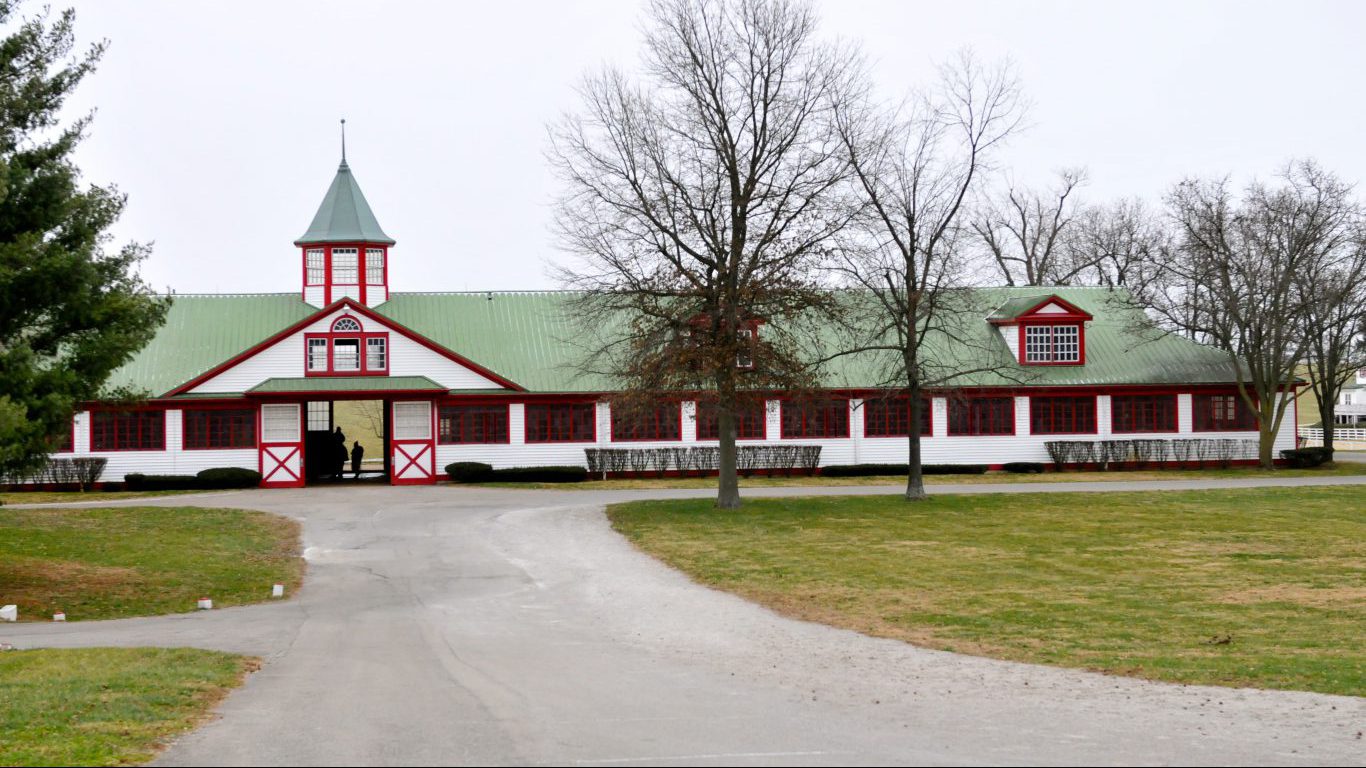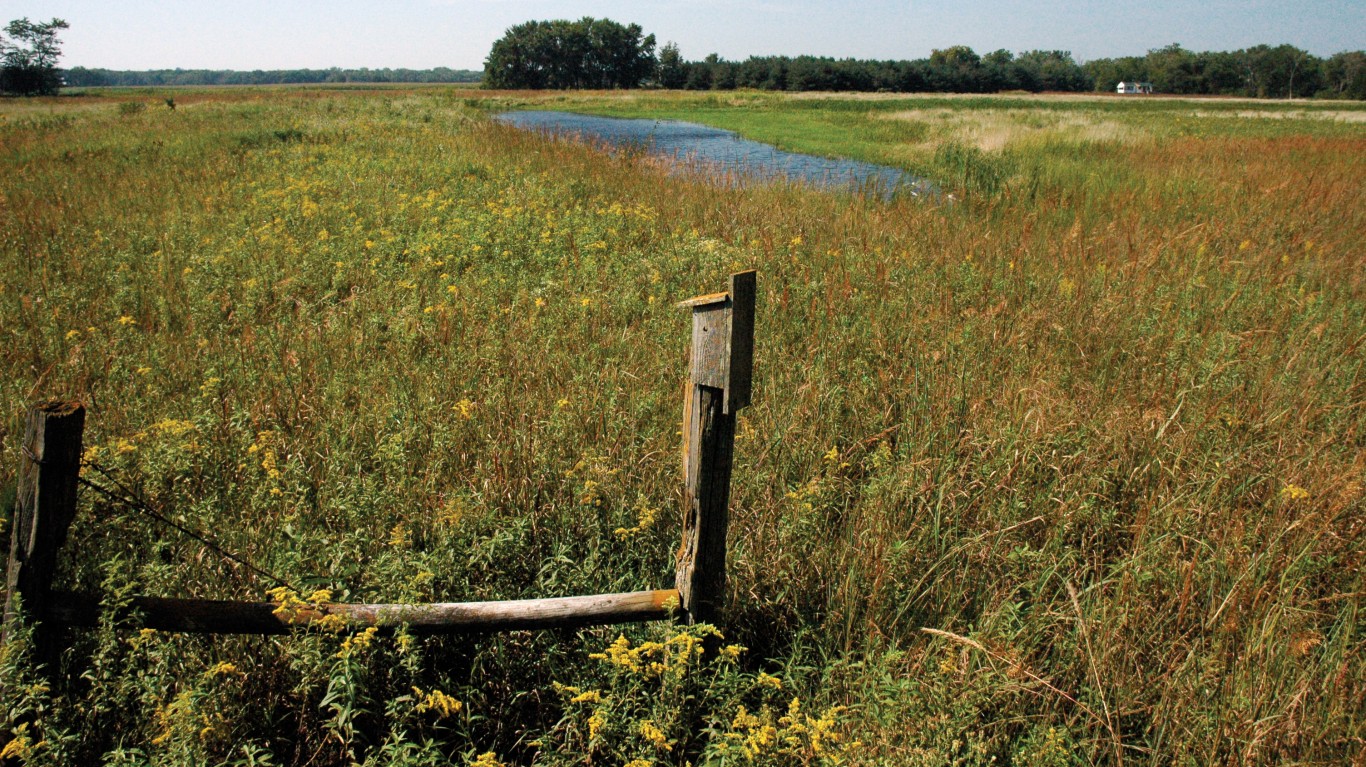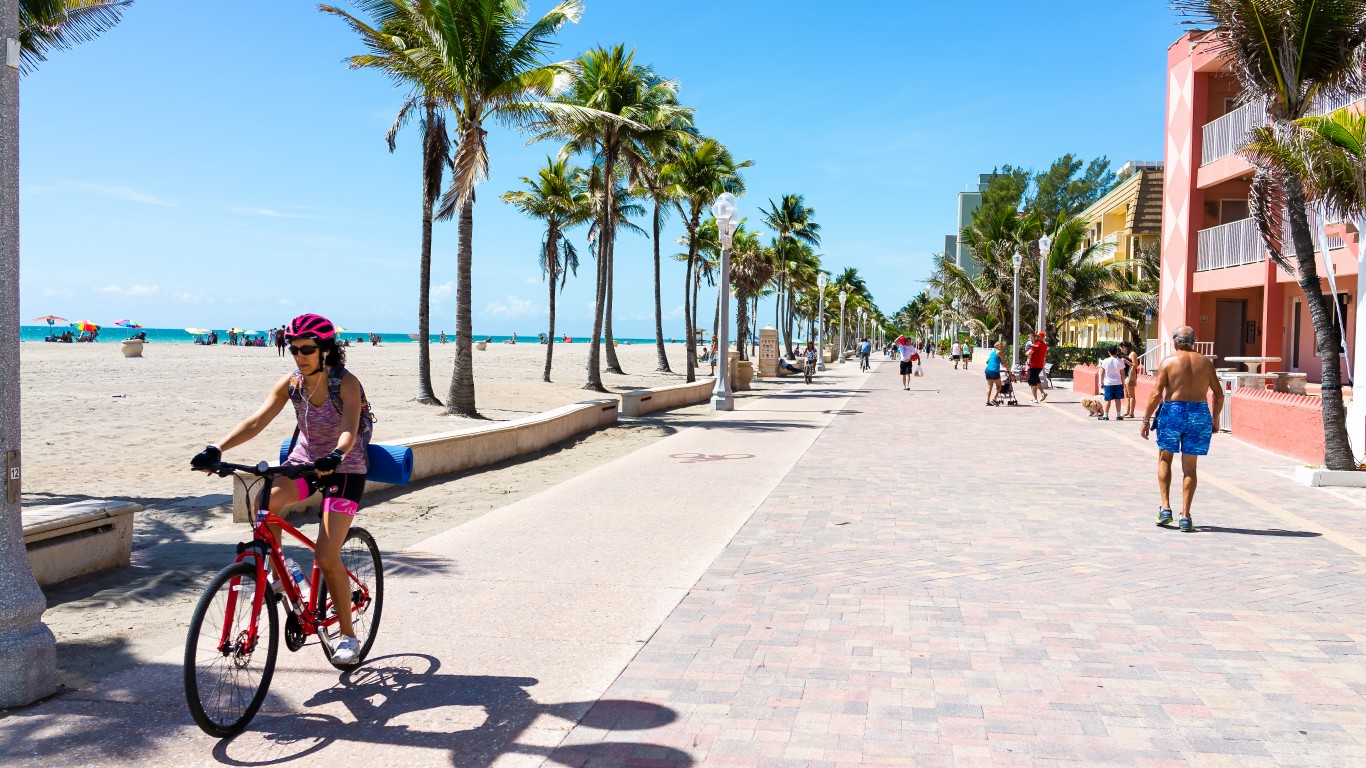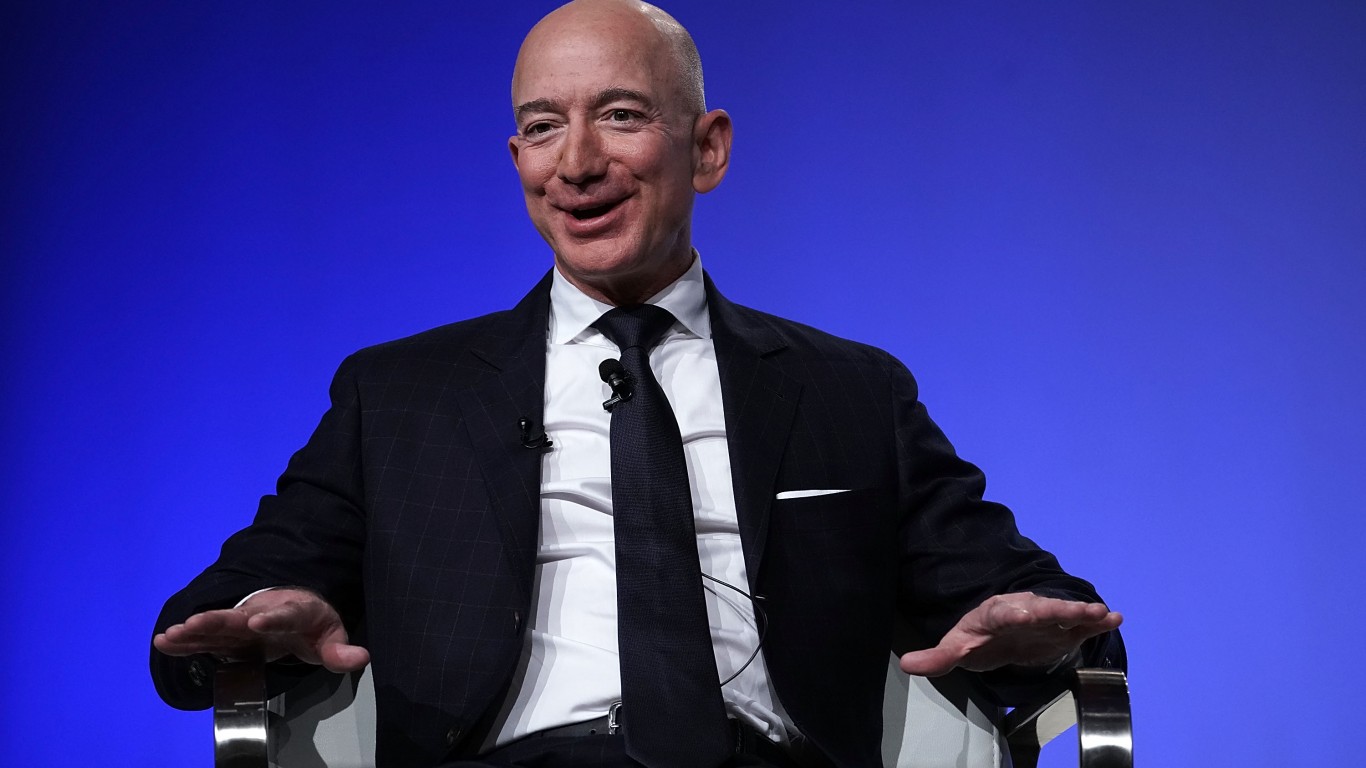
Real estate is a hot commodity in the United States. Though the U.S. is one of the world’s largest countries, spanning 2.27 billion acres, land is a resource with a fundamentally fixed limit. And as with any limited resource in high demand, land is expensive. According to the U.S. Department of Agriculture, a single acre of crop land – to say nothing of commercial or residential real estate – was worth an average of $5,050 in 2022, an all-time high, up 14% from 2021.
The federal government owns some 640 million acres, or 28% of land area in the United States, according to congressional reports. Much of that land is open to the public, and its usage, ostensibly, serves the public good. In contrast, there are millions of acres in the U.S. that are privately owned. A large portion is held by a handful of individuals and families who are beholden to no one’s interests but their own. (Here is a look at how much land in each state is owned by the federal government.)
Using data compiled by the individual retirement account firm Madison Trust Company in its report Who Owns the Most Land in the United States, 24/7 Wall St. identified the top private landowners in the United States. The 25 individuals and families on this list are ranked by the total acres of land they own. Leased land was not considered.
The individuals and families on this list own a combined 24.3 million acres, larger than the size of several states, including Indiana, Maine, and South Carolina. Much of the land owned by the people on this list is used for business enterprises, including agriculture, lumber production, and ranching.
The largest landowners in the U.S. include heirs to family fortunes and successful business entrepreneurs. Some of them rank among the wealthiest people in the world. According to the Bloomberg Billionaires Index, Amazon founder Jeff Bezos, who owns a reported 420,000 acres in Texas, is worth $122 billion, making him the third richest person in the world. Thomas Peterfly, who owns 581,000 acres in Georgia and Florida, founded the electronic trading platform Interactive Brokers and is worth $27.1 billion, making him the 49th richest person in the world. (Here is a look at the city in every state with the most billionaires.)
Click here to see which people own the most land in America.
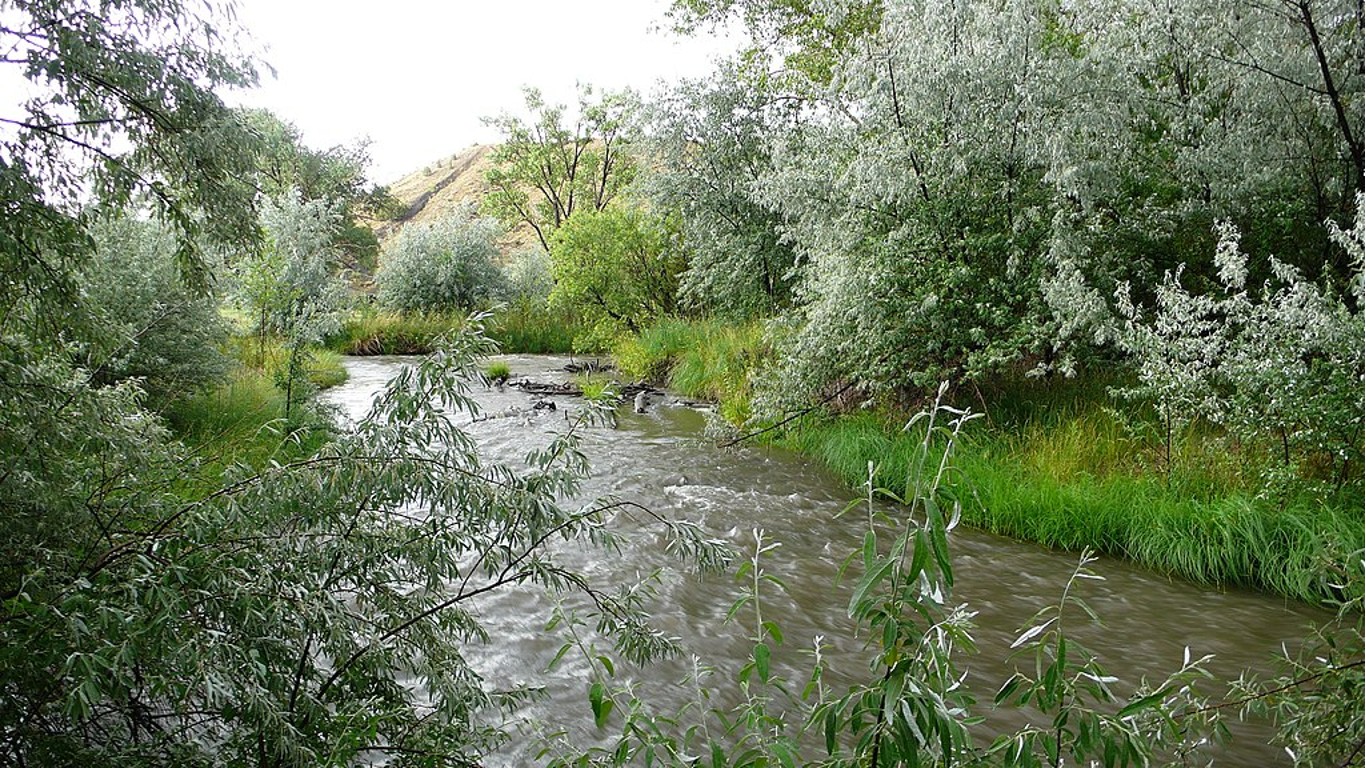
25. Zane and Tanya Kiehne
> Acres owned: 400,000 (about five times the size of Dublin)
> Location(s): New Mexico, Texas
> Landowner background: Co-founded Ranchers Choice Land Sales Inc., a farm, ranch, and hunting property sales firm
[in-text-ad]

24. Jeff Bezos
> Acres owned: 420,000 (about twice the size of New York City)
> Location(s): Texas
> Landowner background: Founder of Amazon, uses Texas real estate holdings to launch rockets for his spaceflight program
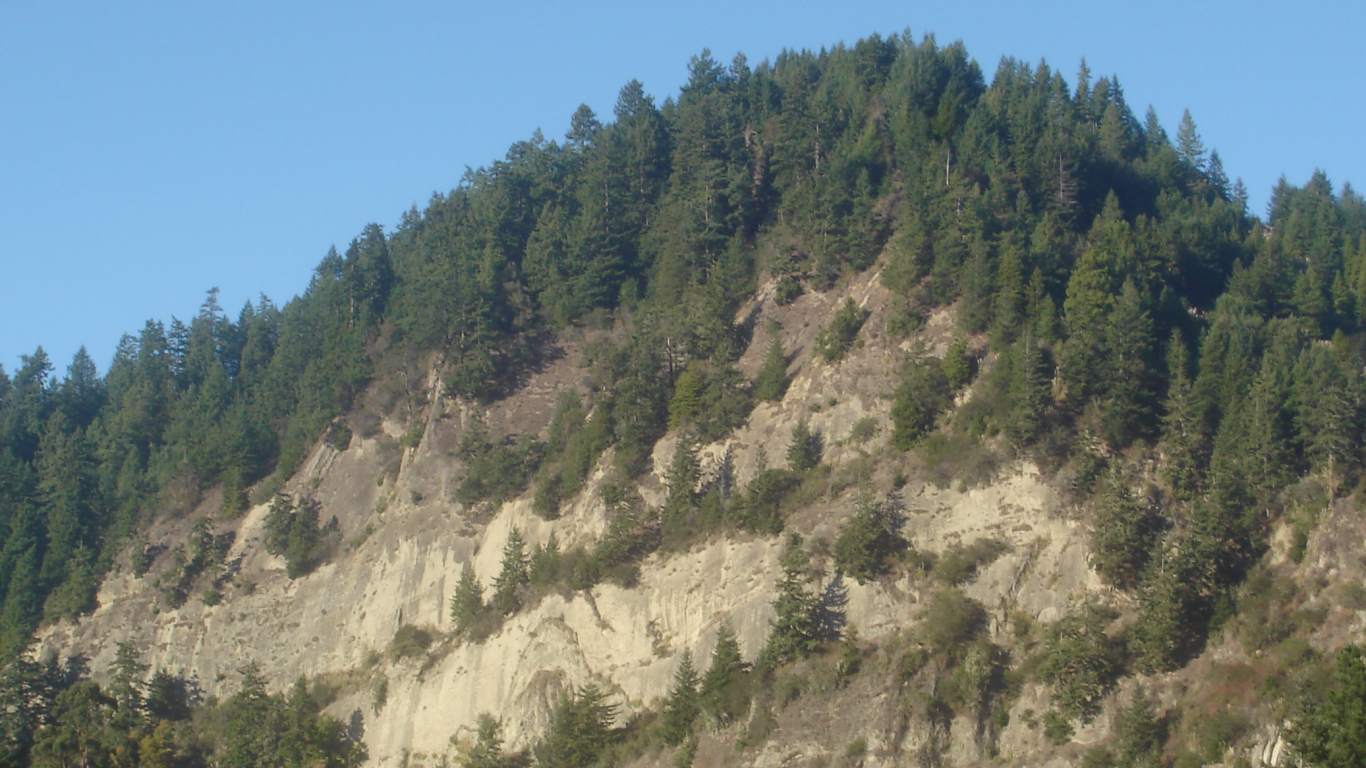
23. Fisher Family
> Acres owned: 440,000 (about ten times the size of Washington, D.C.)
> Location(s): California
> Landowner background: Owners of the Mendocino Redwood Company and Humboldt Redwood Company
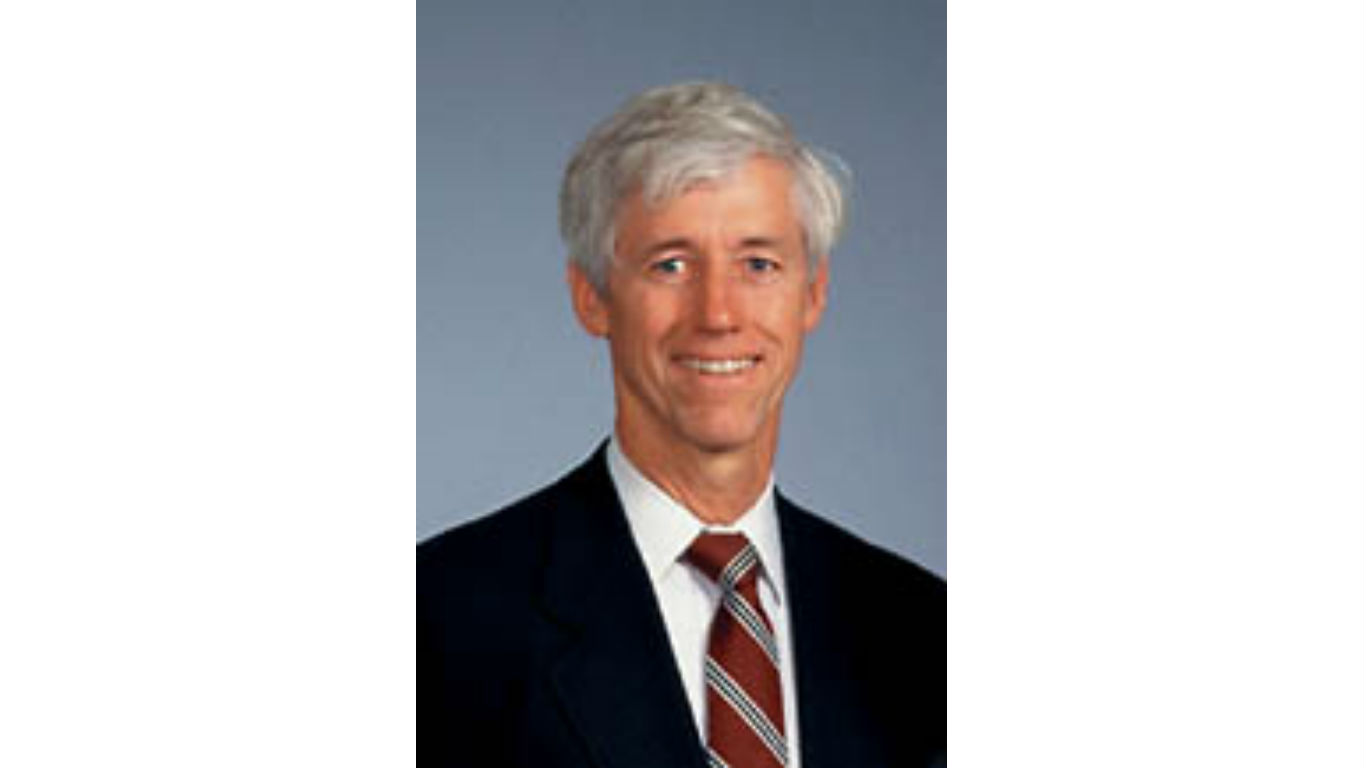
22. Simplot Family
> Acres owned: 443,091 (about five times the size of Detroit)
> Location(s): Idaho
> Landowner background: Descendants of Jack Simplot whose company became the sole supplier of potatoes to McDonald’s
[in-text-ad-2]
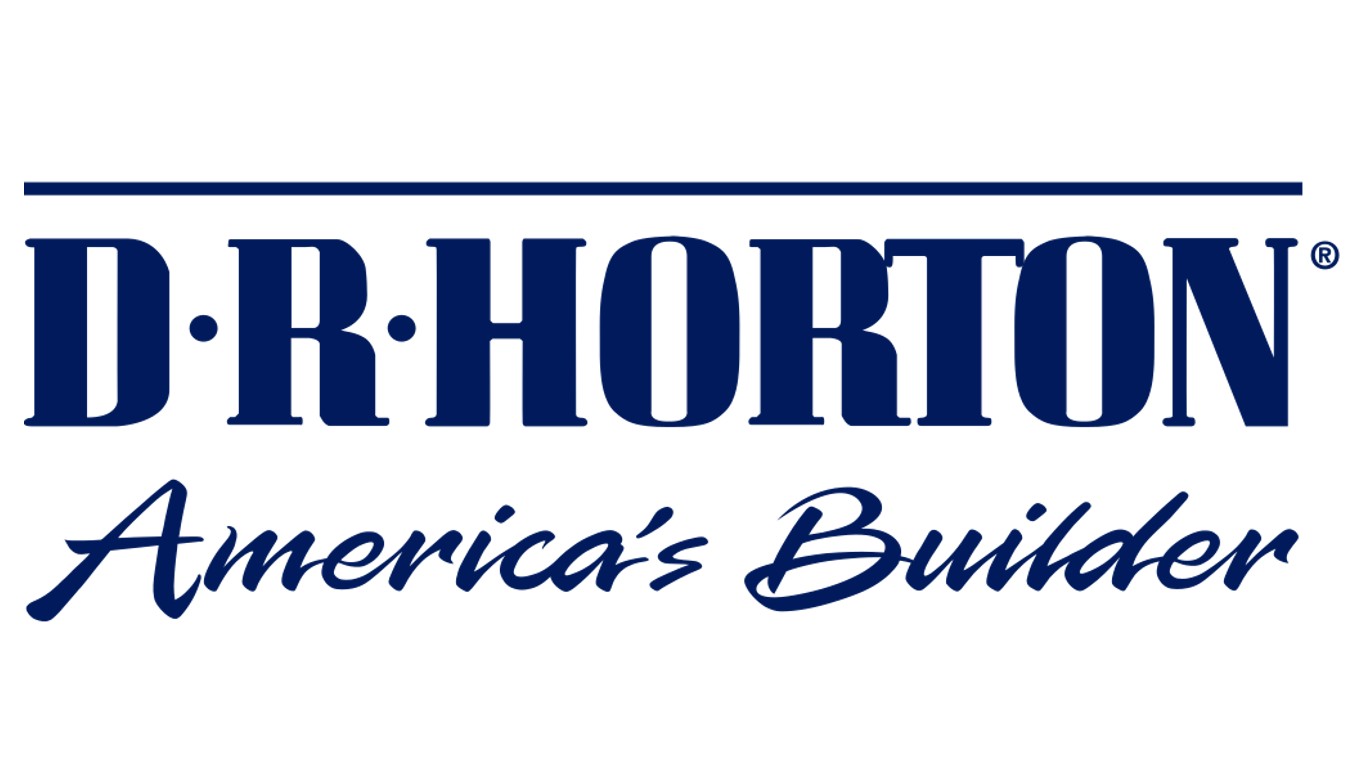
21. Don Horton
> Acres owned: 507,410 (about half the size of Rhode Island)
> Location(s): Nationwide
> Landowner background: One of the largest homebuilder in the US by production volume
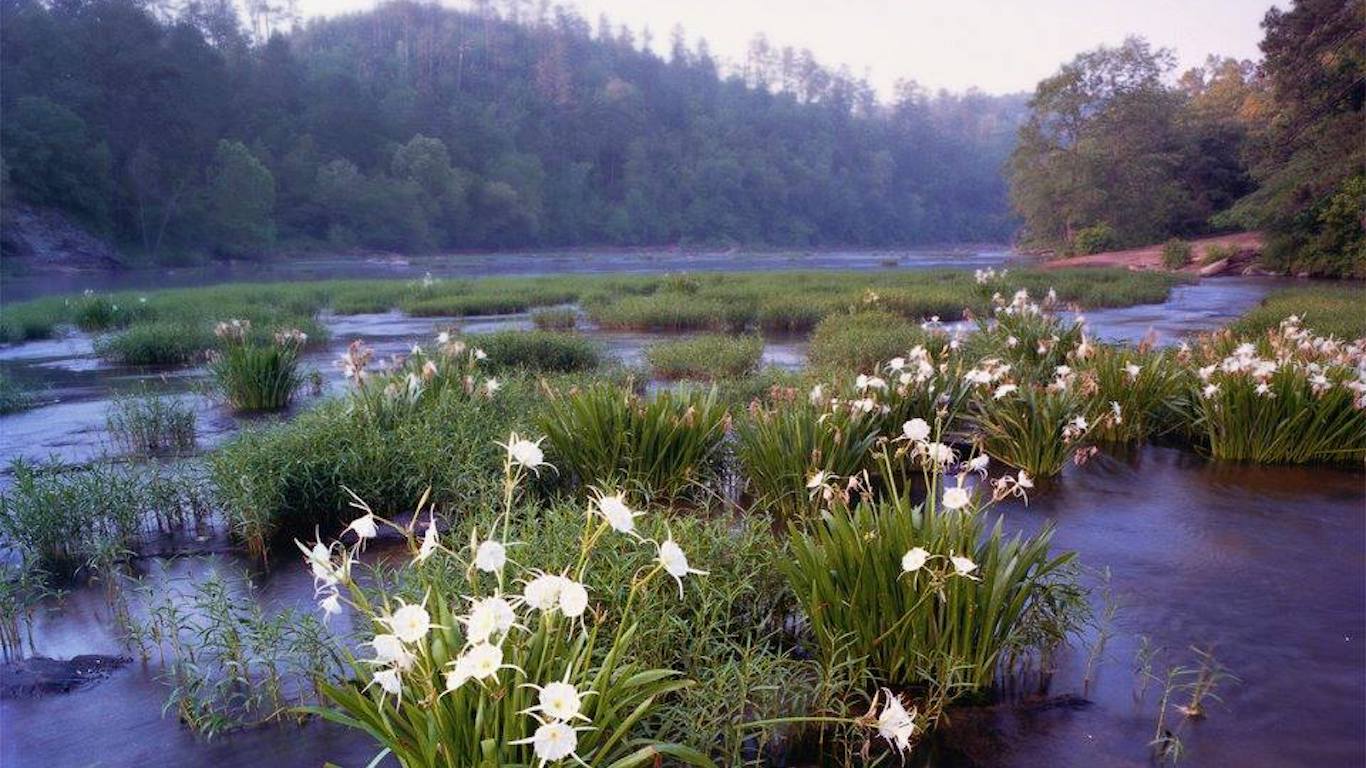
20. Westervelt Heirs
> Acres owned: 518,000 (about four and a half times the size of San Jose, California)
> Location(s): Alabama, Florida, Georgia, Mississippi, South Carolina
> Landowner background: Descendants of the founder of Prairie States Paper Company
[in-text-ad]
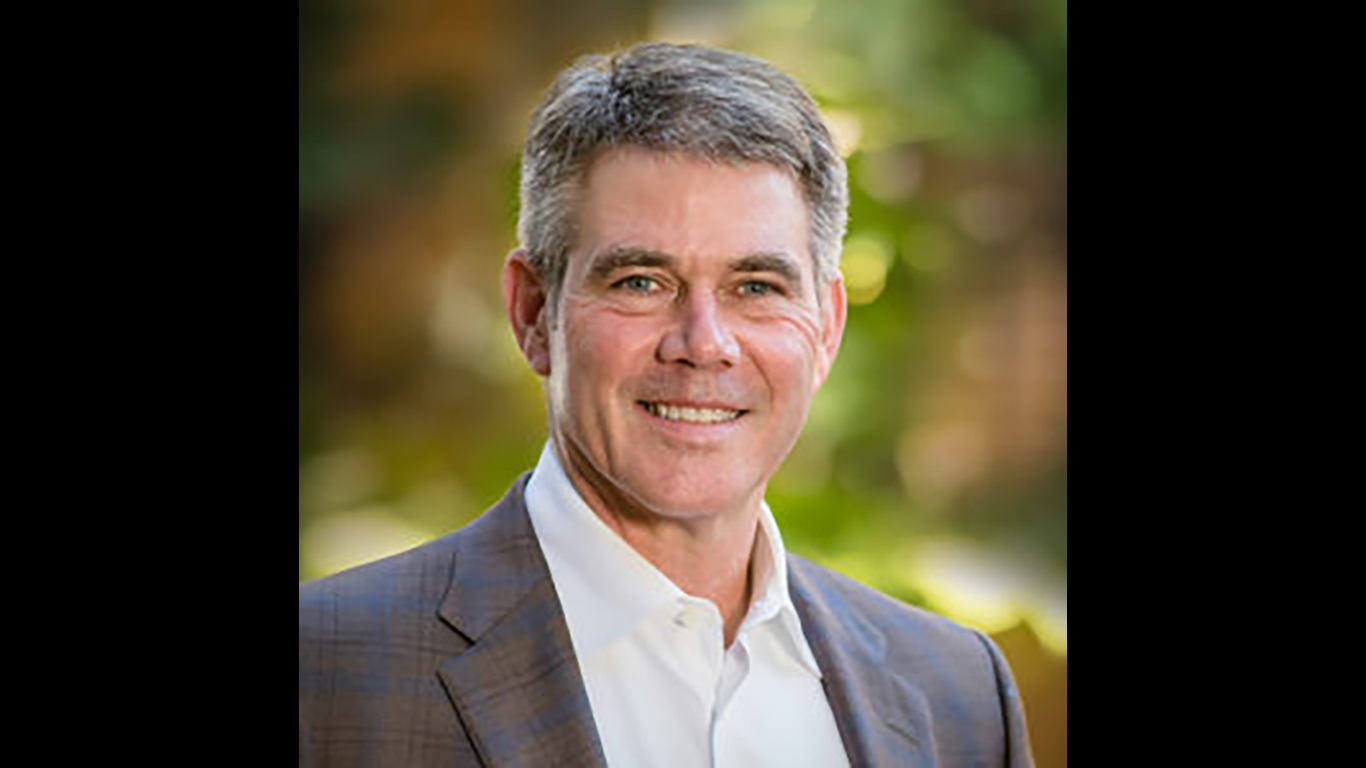
19. Martin Family
> Acres owned: 550,000 (about 200 times the size of London Heathrow Airport)
> Location(s): Louisiana
> Landowner background: Descendants of the founder of RoyOMartin, a timber and wood product company
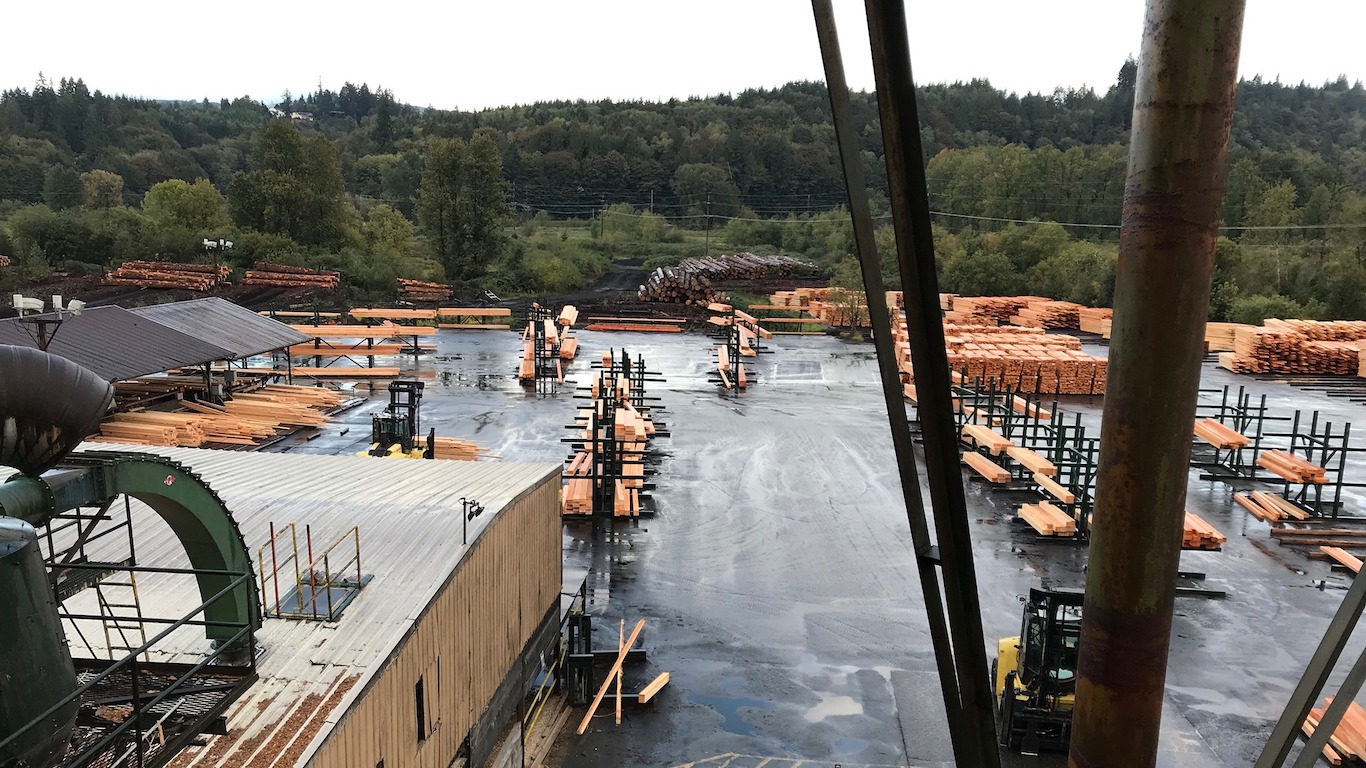
18. Stimson Family
> Acres owned: 552,000 (about 150 times the size of Los Angeles International Airport)
> Location(s): Idaho, Oregon, Montana
> Landowner background: Sixth generation owners of the Stimson Lumber Company, one of America’s oldest logging operations
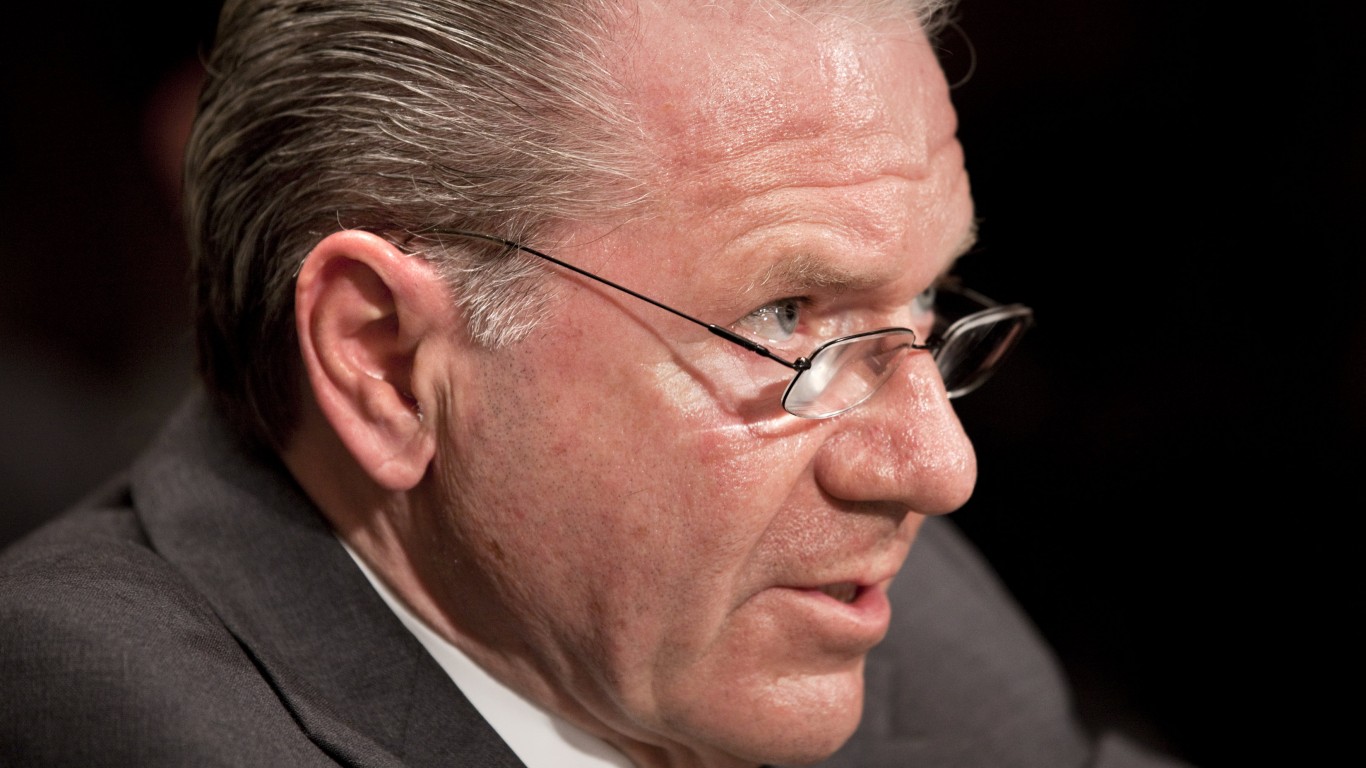
17. Thomas Peterffy
> Acres owned: 581,000 (about six and a half times the size of Philadelphia)
> Location(s): Florida, Georgia
> Landowner background: Properties are used for agricultural, residential, commercial, and industrial development
[in-text-ad-2]
16. O’Connor Heirs
> Acres owned: 587,800 (about four times the size of Chicago)
> Location(s): Texas
> Landowner background: Own the O’Connor Ranch, one of the oldest ranches in Texas
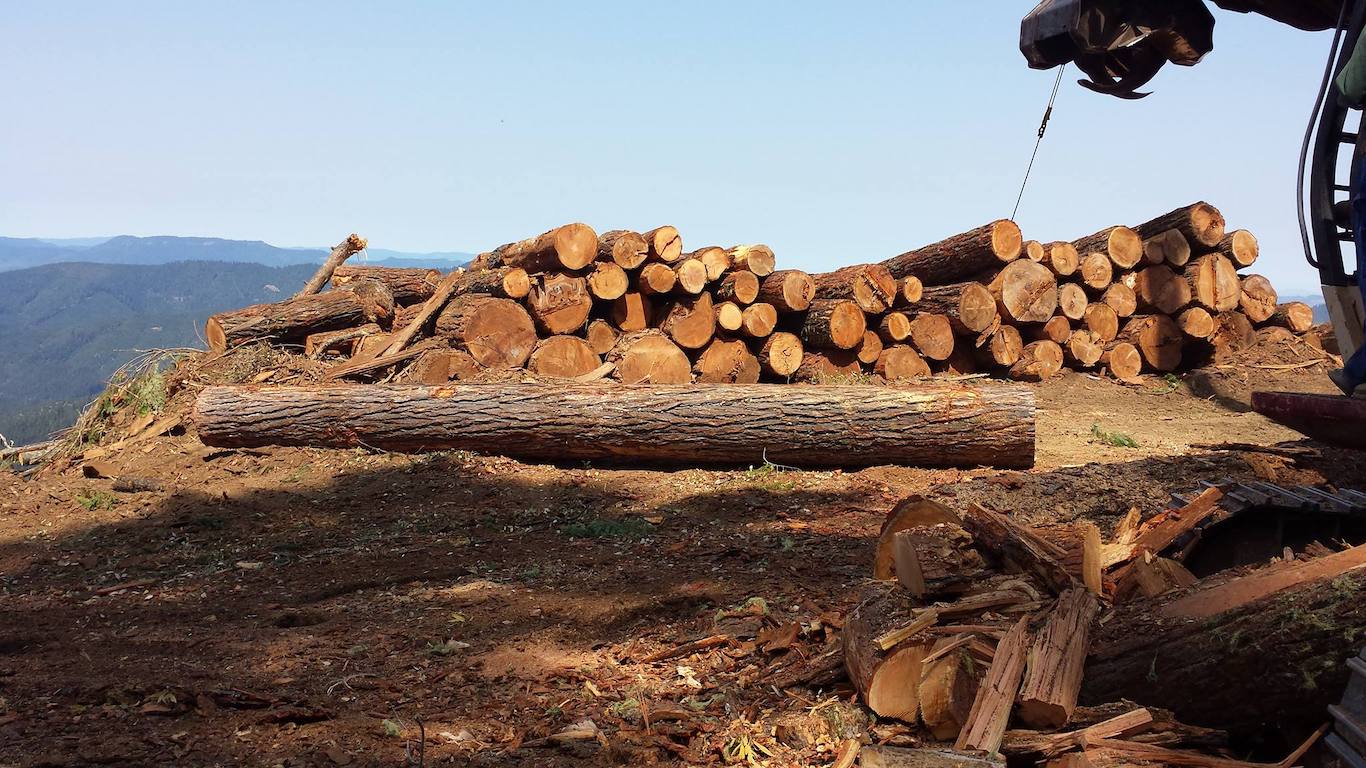
15. Ford Family
> Acres owned: 600,000 (about three times the size of New York City)
> Location(s): California, Oregon, South Carolina, Louisiana, Virginia
> Landowner background: Family owns Roseburg Forest Products, a lumber and finished wood product company
[in-text-ad]
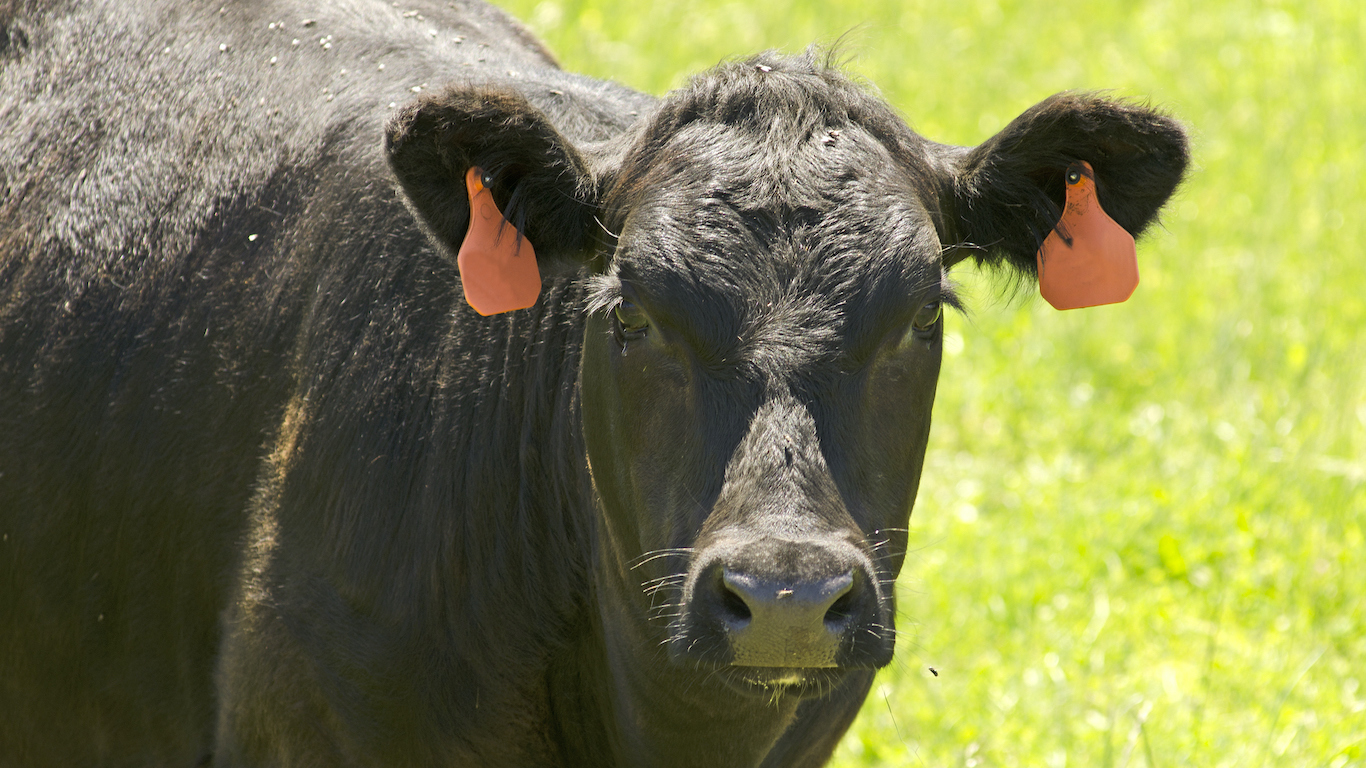
14. Lykes Heirs
> Acres owned: 615,000 (about twice the size of Phoenix)
> Location(s): Florida, Texas
> Landowner background: Own cattle ranches in Texas and citrus groves in Florida
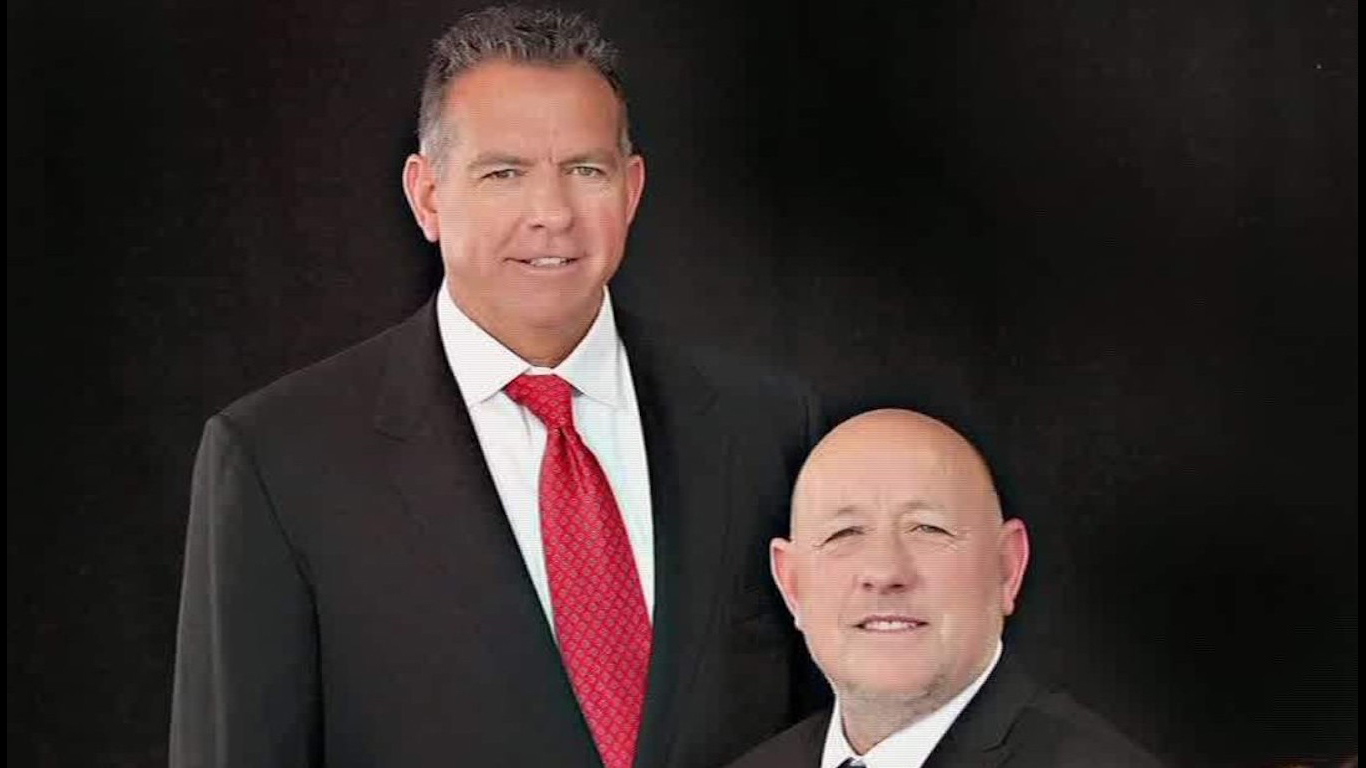
13. Wilks Brothers
> Acres owned: 675,000 (about six times the size of San Jose)
> Location(s): Texas, Idaho, Montana
> Landowner background: Sold shares of Frac Tech, an energy company, to purchase ranch land
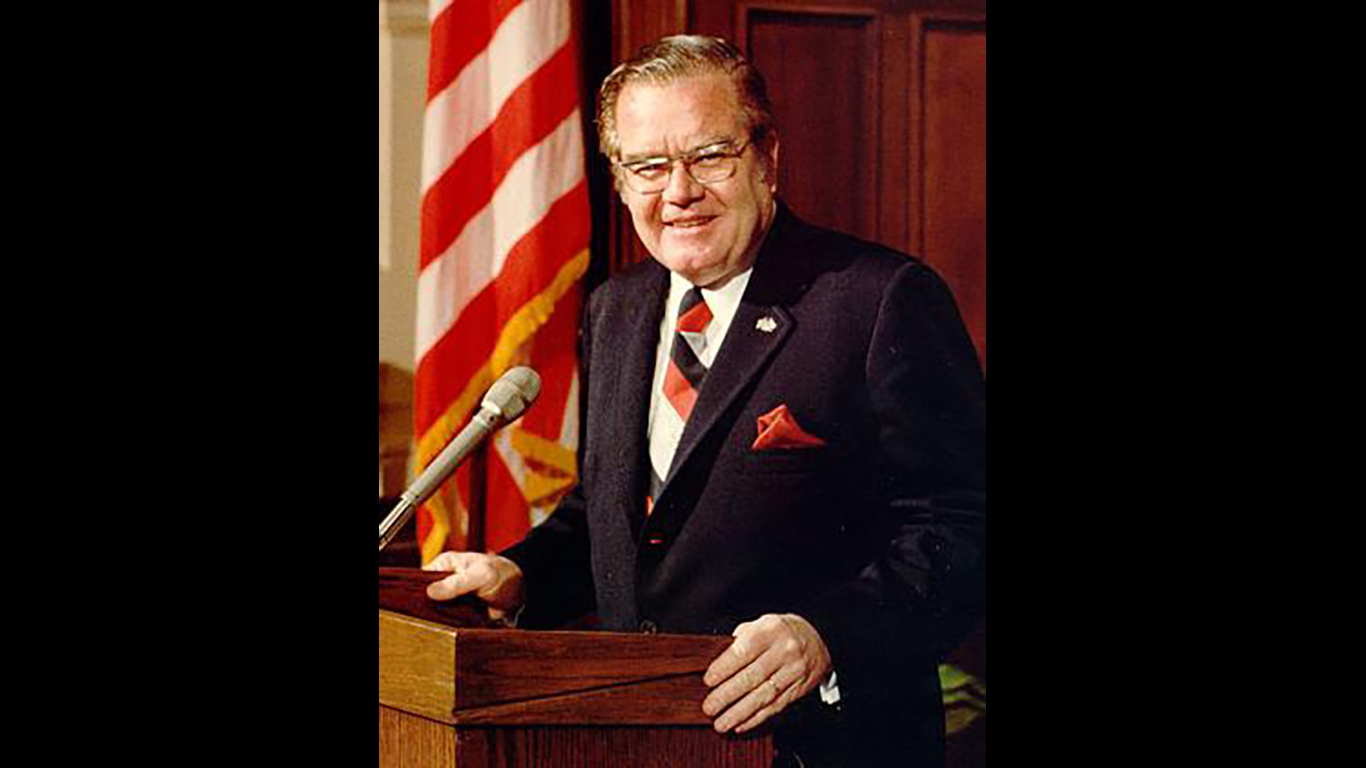
12. Briscoe Family
> Acres owned: 686,000 (about three times the size of Dallas)
> Location(s): Texas
> Landowner background: Family of a former Texas governor who collectively own ranches raising thousands of cattle
[in-text-ad-2]
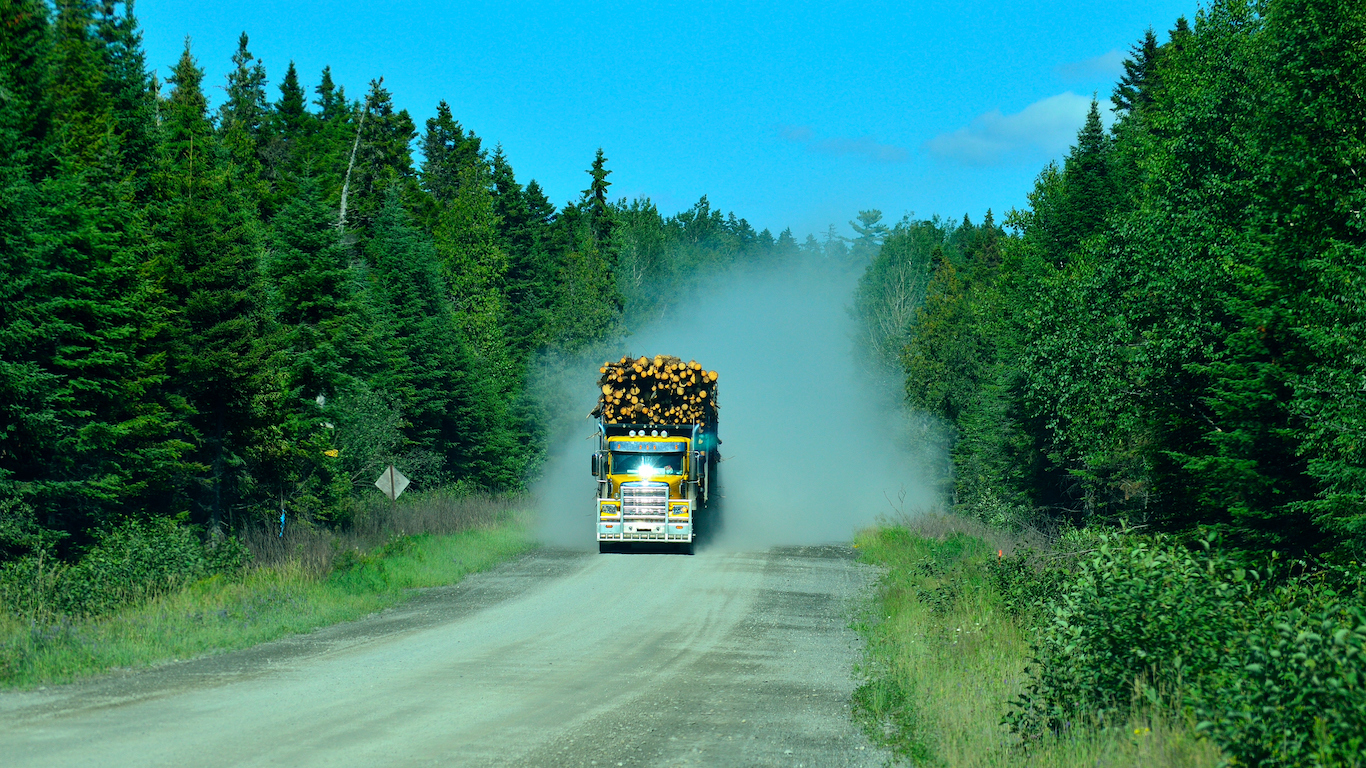
11. Pingree Heirs
> Acres owned: 830,000 (about four times the size of San Diego)
> Location(s): Maine, New Hampshire
> Landowner background: Owns parts of Mount Washington and the Seven Islands Land Company, which operates in timber production
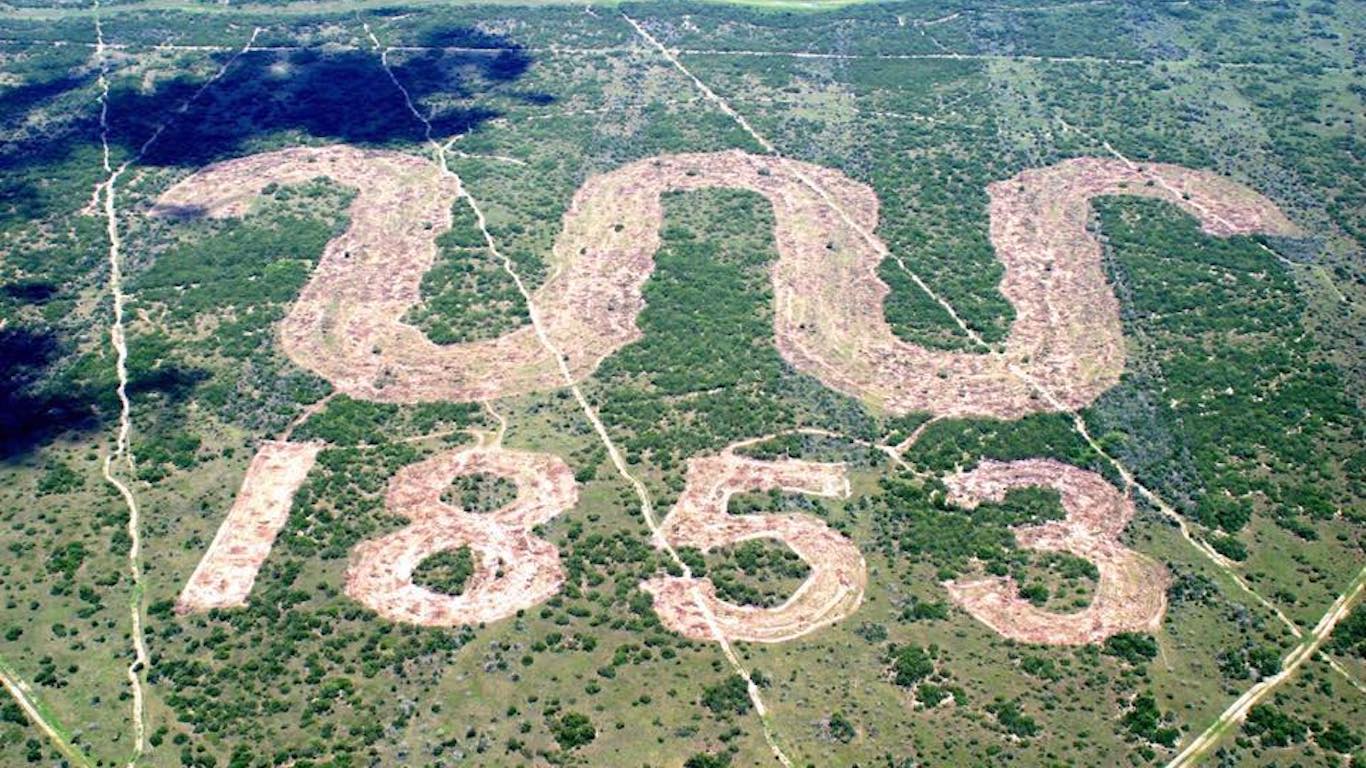
10. King Family
> Acres owned: 911,215 (about three times the size of Los Angeles)
> Location(s): Texas
> Landowner background: Owners of King Ranch in Texas and other ranching and oil producing properties
[in-text-ad]
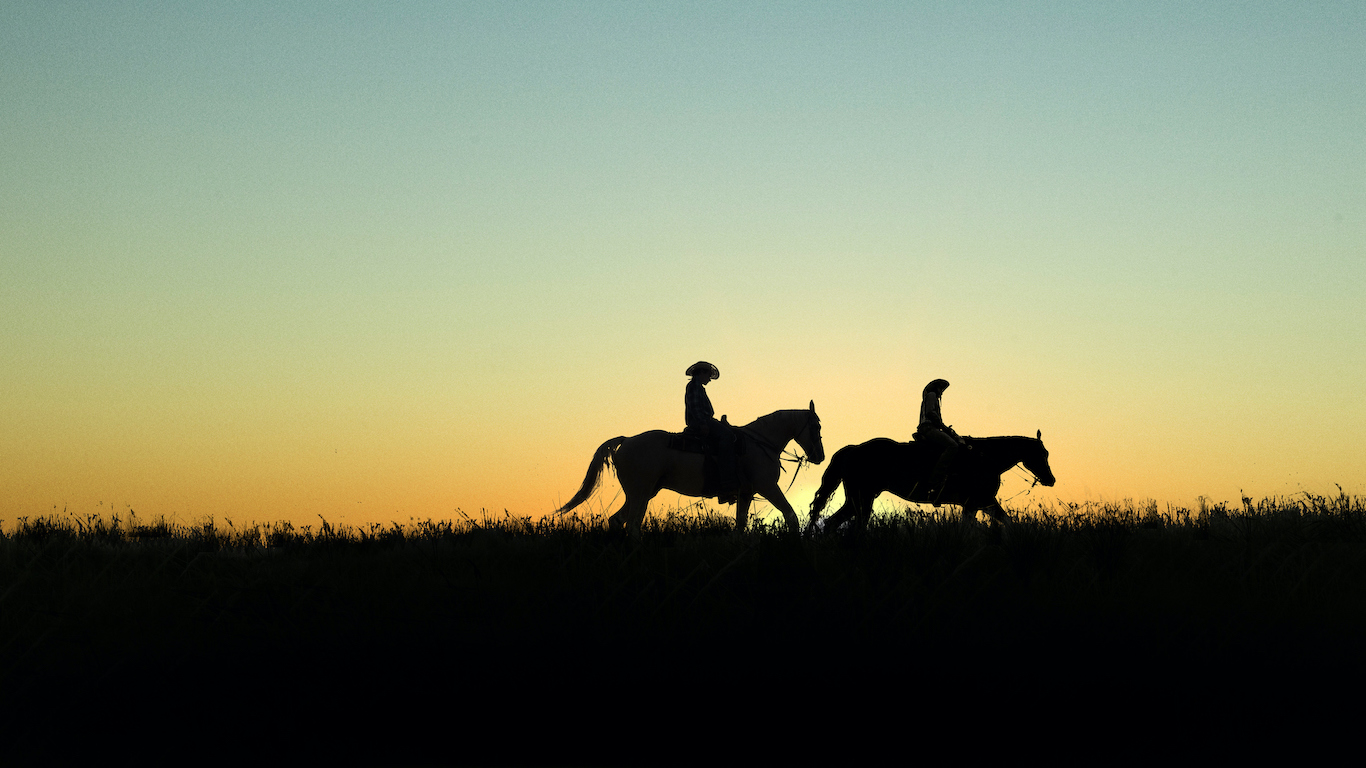
9. Singleton Family
> Acres owned: 1,110,000 (about five times the size of Indianapolis)
> Location(s): California, New Mexico
> Landowner background: Owners of the Singleton Ranches, which are among the world’s largest cattle operations
8. Brad Kelley
> Acres owned: 1,139,984 (about three times the size of Houston)
> Location(s): Texas, New Mexico
> Landowner background: Founded the Commonwealth Brands tobacco company
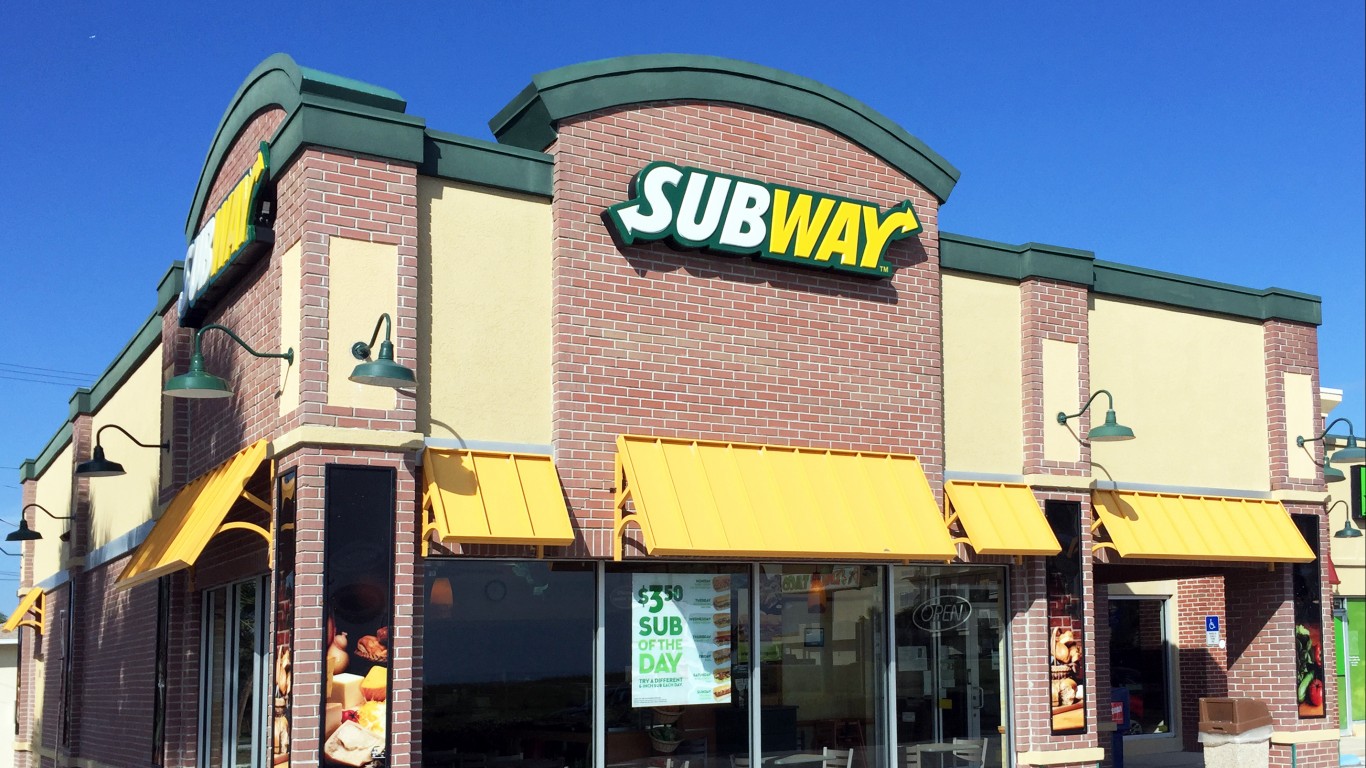
7. Buck Family
> Acres owned: 1,236,000 (about twice the size of Cape Town)
> Location(s): Maine
> Landowner background: Family includes the co-founder of Subway restaurants
[in-text-ad-2]
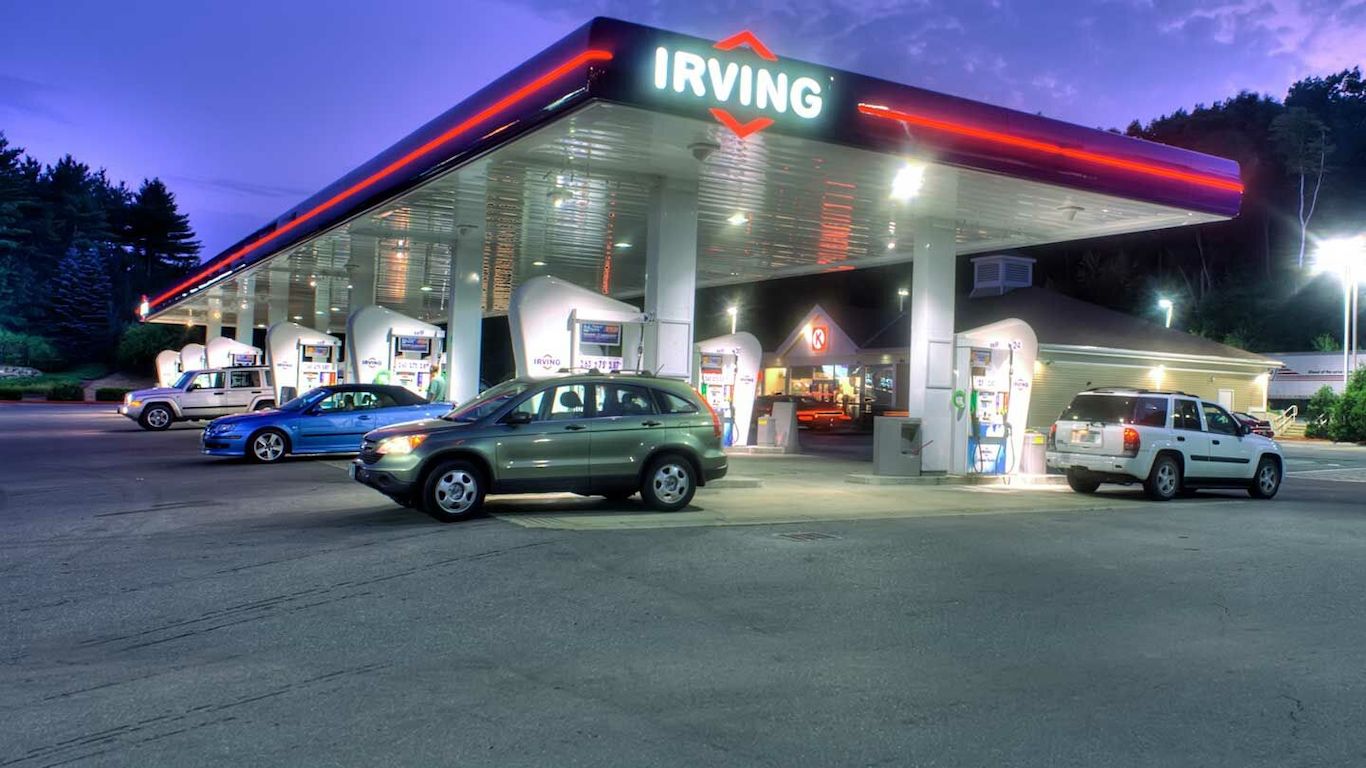
6. Irving Family
> Acres owned: 1,267,792 (about half the size of the Island of Hawaii)
> Location(s): Maine
> Landowner background: Descendants of the founder of Canadian conglomerate J.D. Irving, Limited
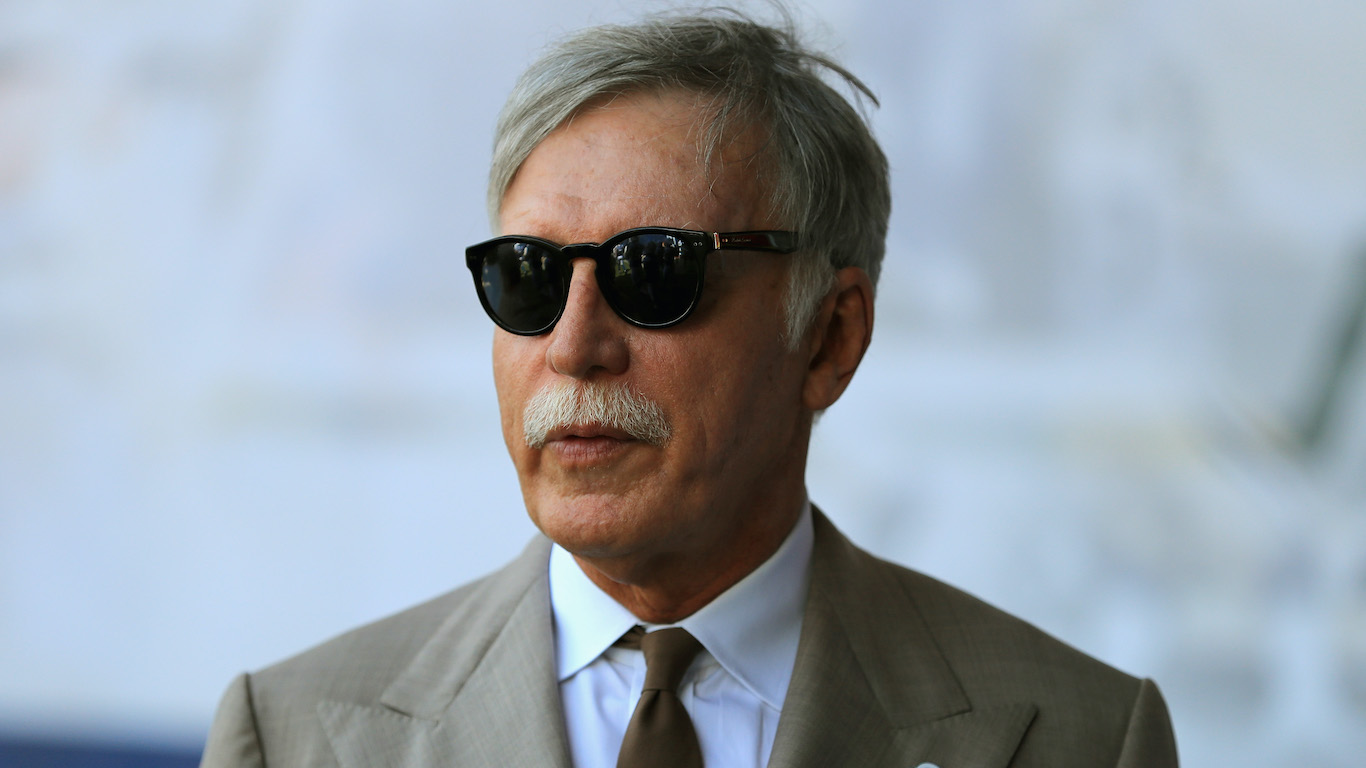
5. Stan Kroenke
> Acres owned: 1,627,500 (about the size of Ottawa)
> Location(s): Texas, Montana
> Landowner background: Owner of multiple professional sports teams and Waggoner Ranch, the largest ranch in Texas
[in-text-ad]
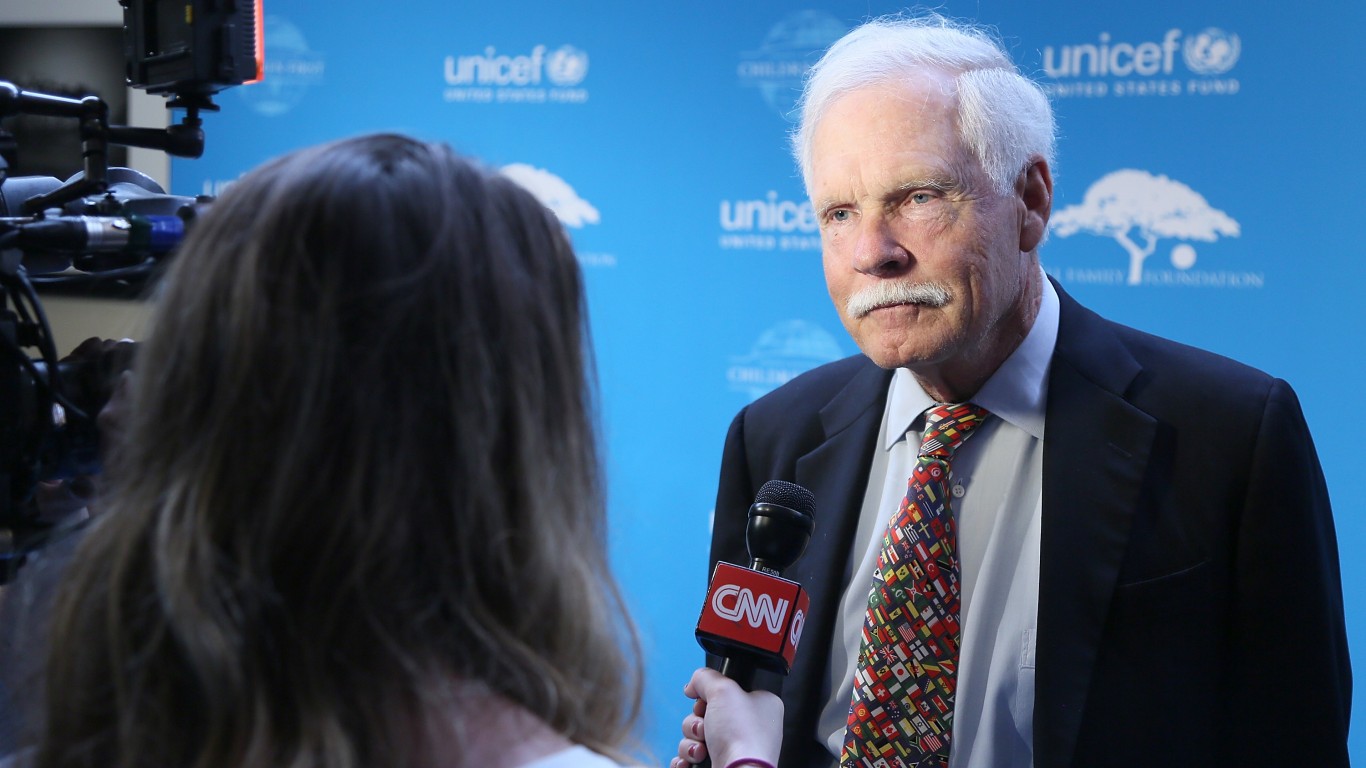
4. Ted Turner
> Acres owned: 2,000,000 (about five times the size of London)
> Location(s): Kansas, Montana, Nebraska, New Mexico, South Dakota
> Landowner background: CNN founder, owner of multiple ranches
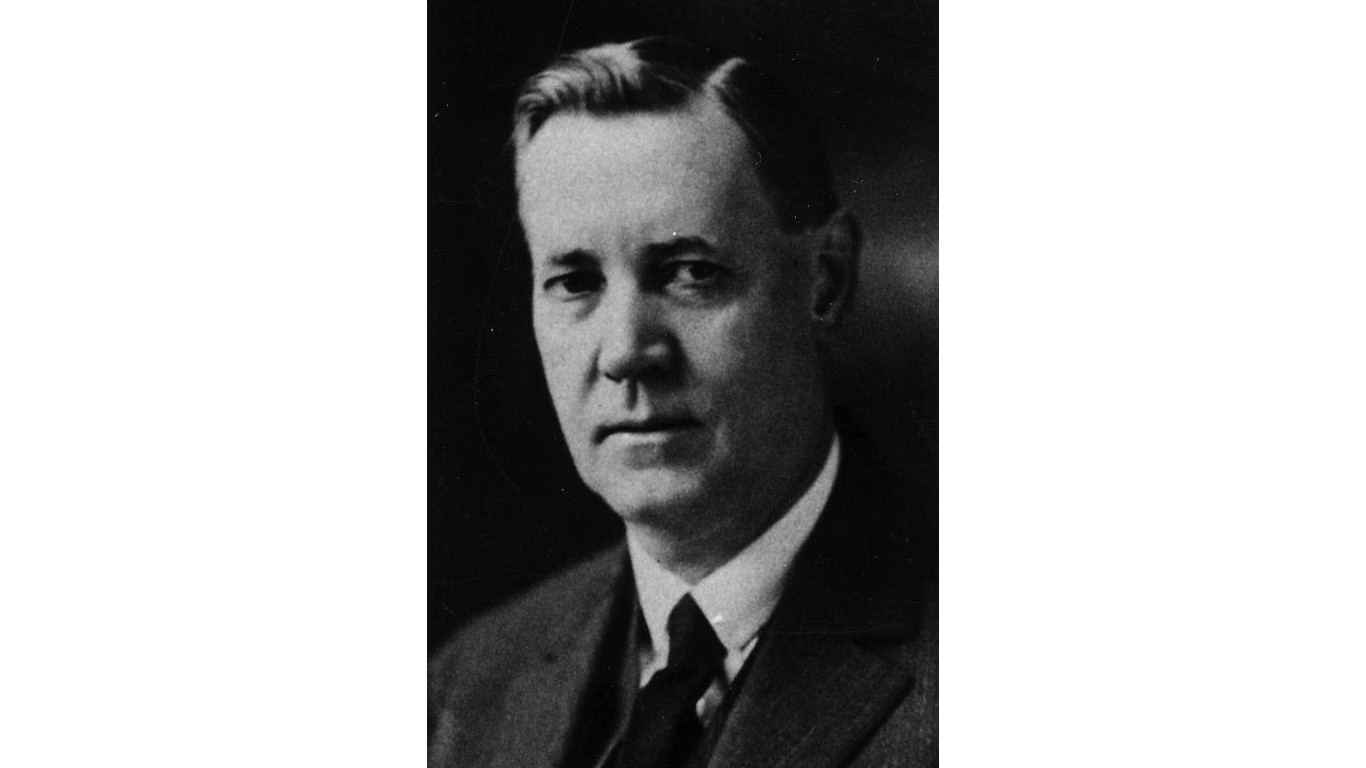
3. Reed Family
> Acres owned: 2,100,000 (about three times the size of Yosemite National Park)
> Location(s): California, Oregon, Washington
> Landowner background: Owner of the Simpson Logging Company
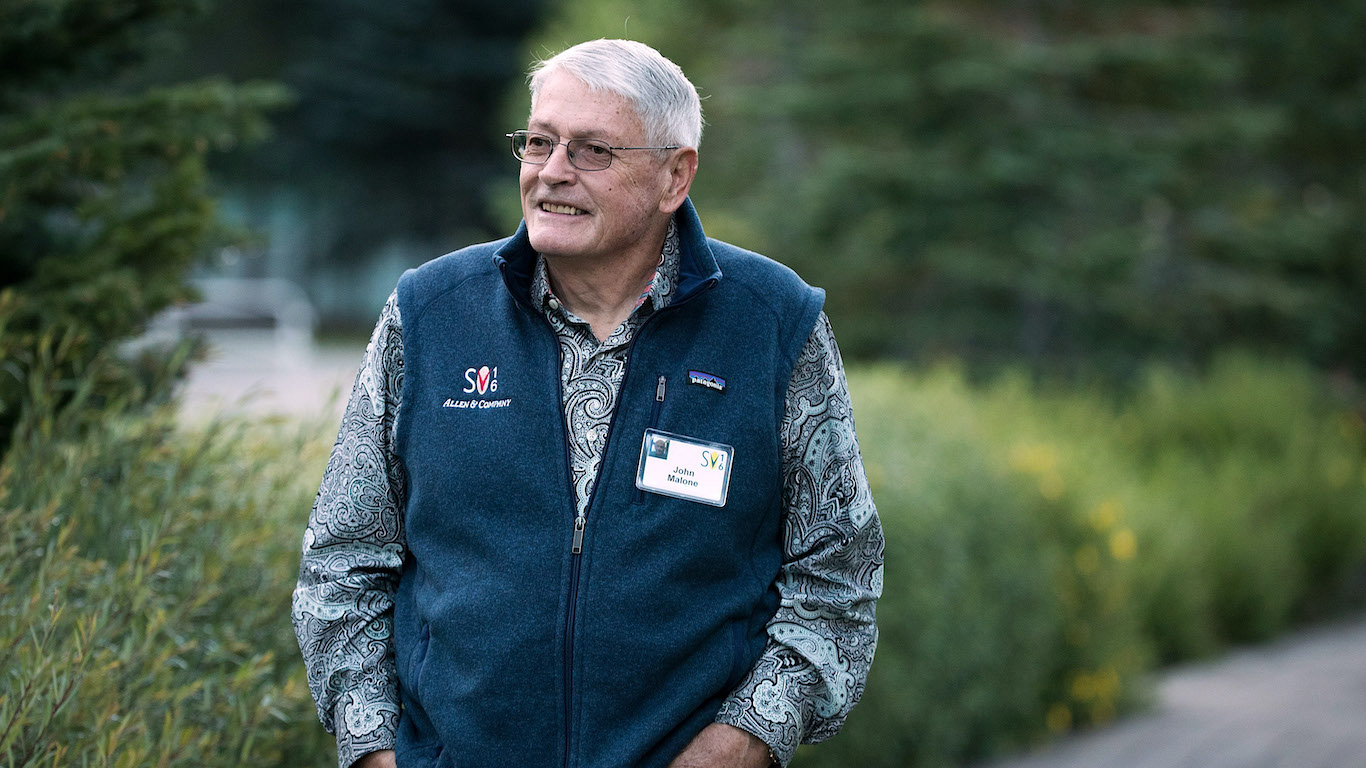
2. John Malone
> Acres owned: 2,200,000 (about twice the size of Rhode Island)
> Location(s): Maine, New Hampshire, Colorado, New Mexico, Wyoming
> Landowner background: Owner of the Malone Family Land Preservation Foundation
[in-text-ad-2]
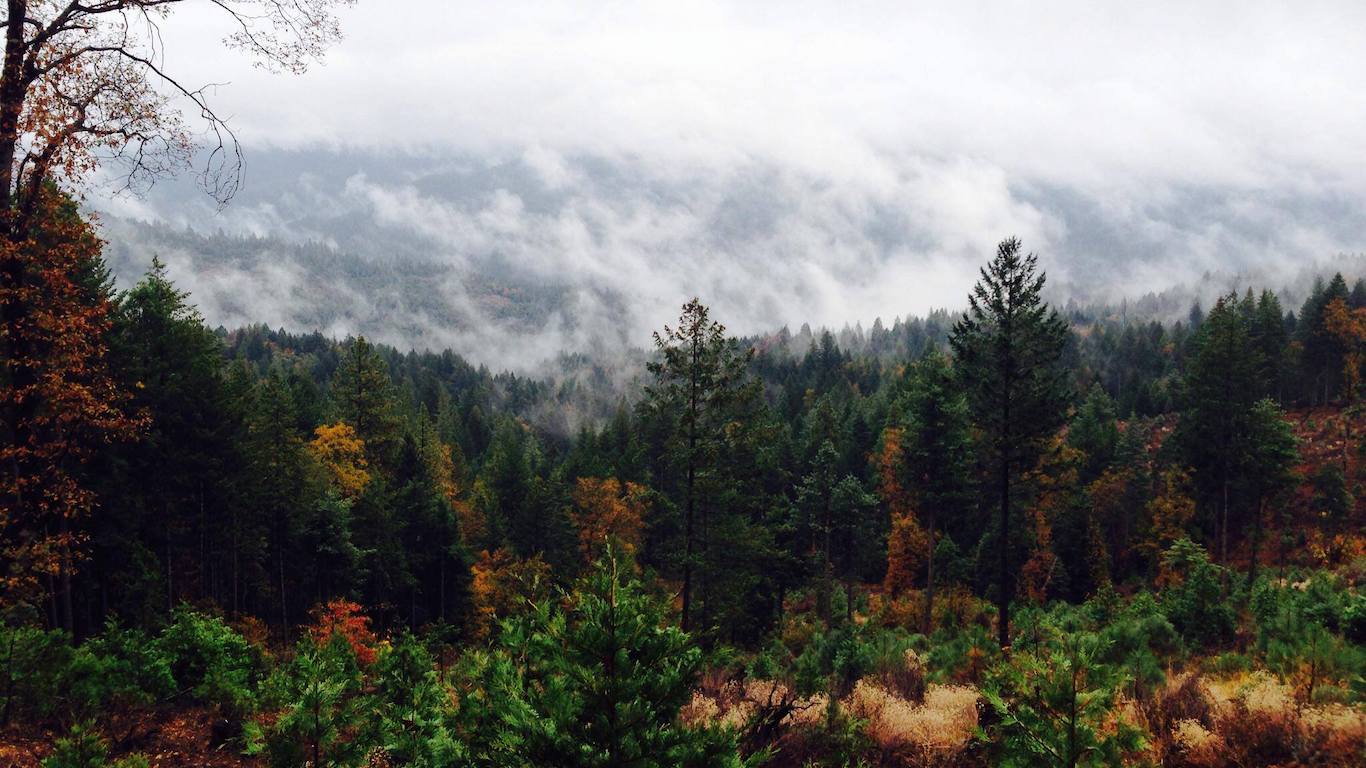
1. Emmerson Family
> Acres owned: 2,330,000 (about half the size of Lake Ontario)
> Location(s): California, Oregon, Washington
> Landowner background: Owner of Sierra Pacific Industries, the largest private lumber company in the U.S.
Travel Cards Are Getting Too Good To Ignore (sponsored)
Credit card companies are pulling out all the stops, with the issuers are offering insane travel rewards and perks.
We’re talking huge sign-up bonuses, points on every purchase, and benefits like lounge access, travel credits, and free hotel nights. For travelers, these rewards can add up to thousands of dollars in flights, upgrades, and luxury experiences every year.
It’s like getting paid to travel — and it’s available to qualified borrowers who know where to look.
We’ve rounded up some of the best travel credit cards on the market. Click here to see the list. Don’t miss these offers — they won’t be this good forever.
Thank you for reading! Have some feedback for us?
Contact the 24/7 Wall St. editorial team.
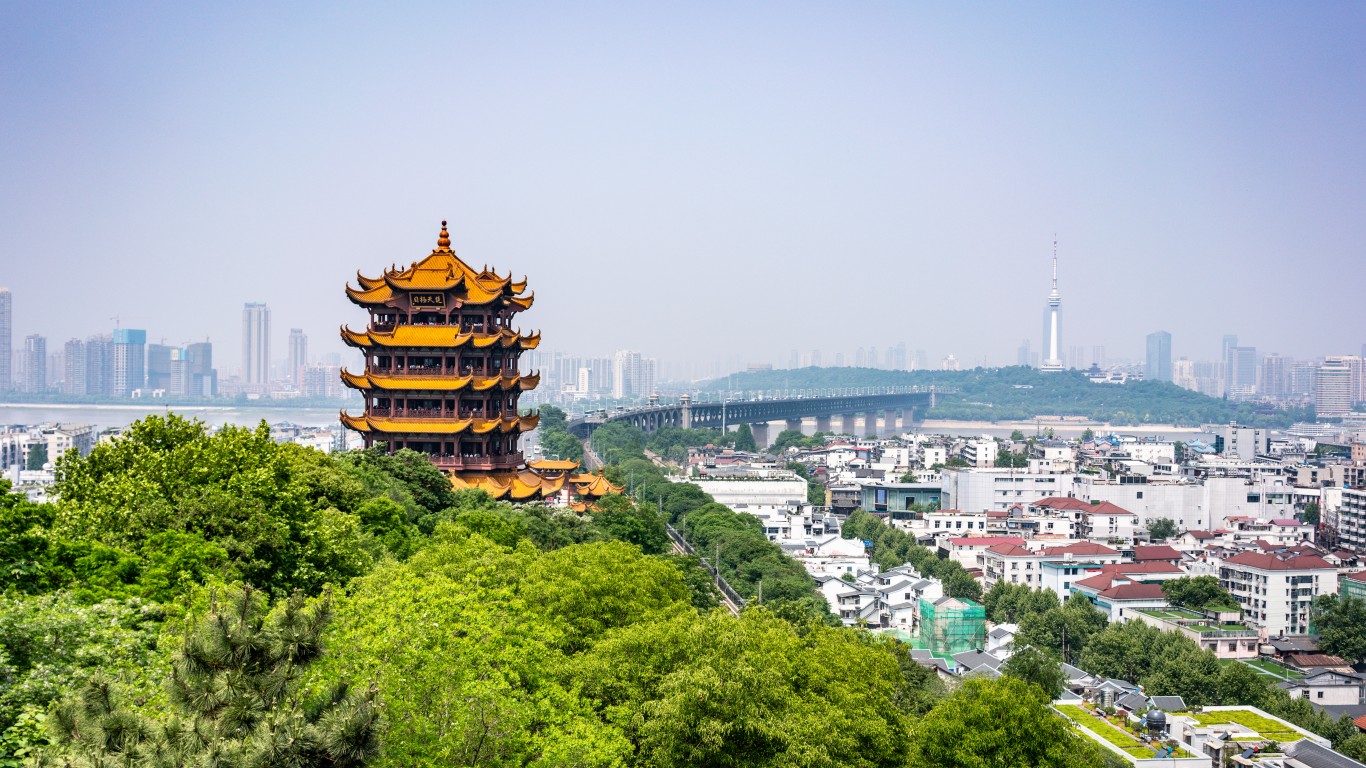 24/7 Wall St.
24/7 Wall St.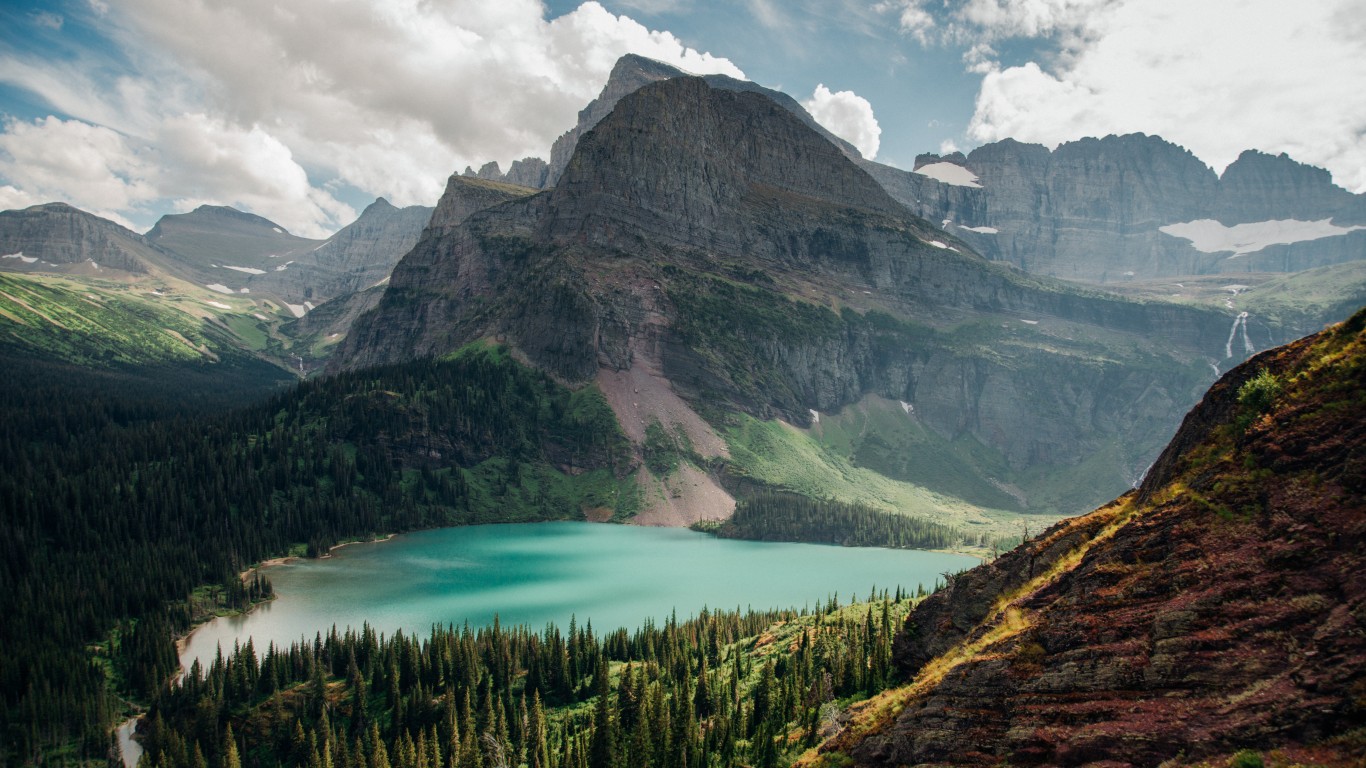 24/7 Wall St.
24/7 Wall St.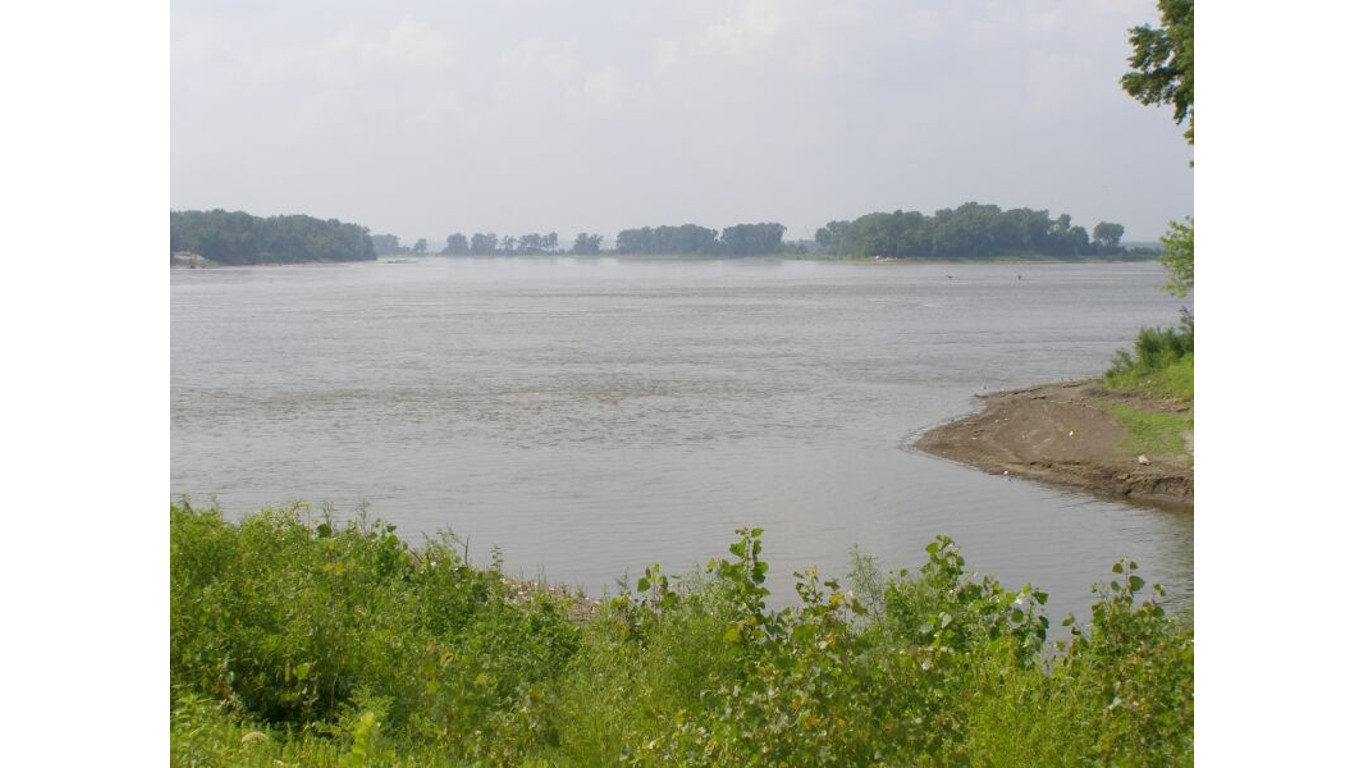
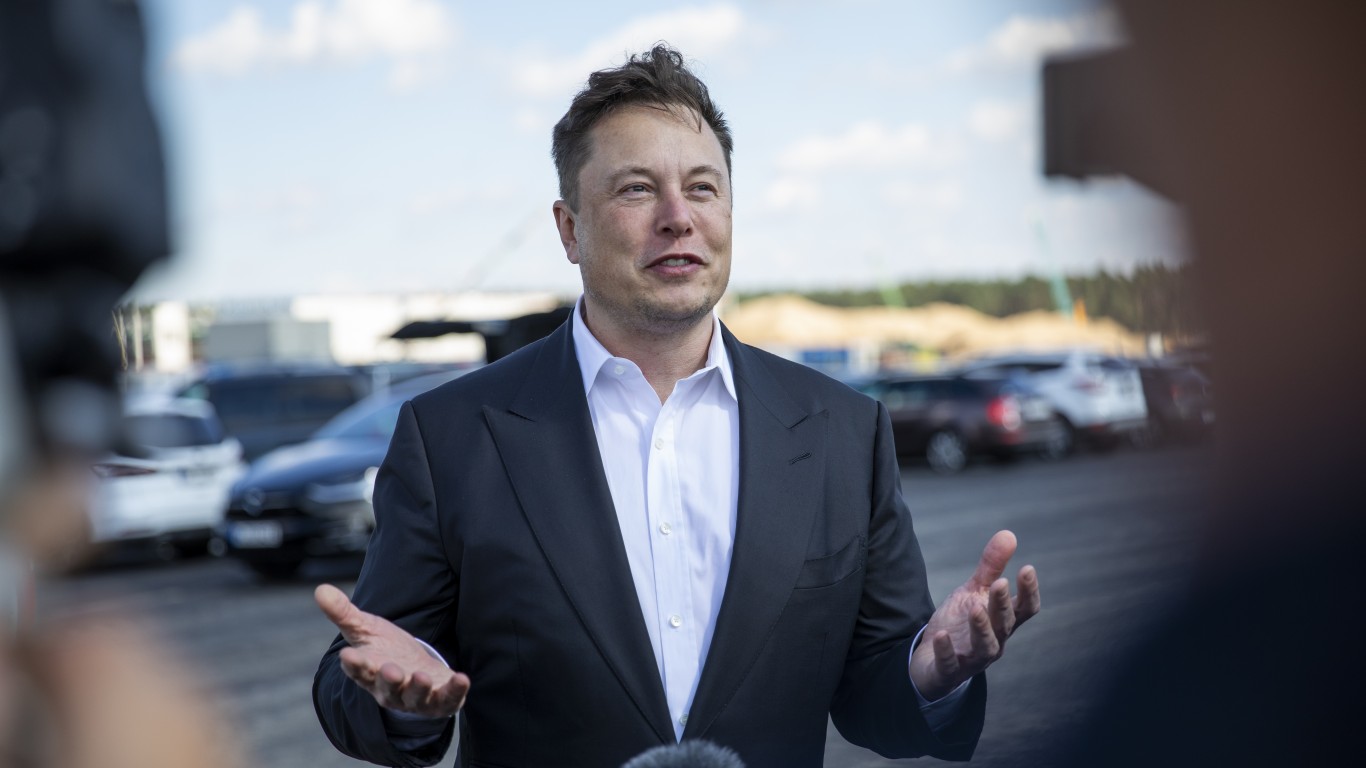 24/7 Wall St.
24/7 Wall St.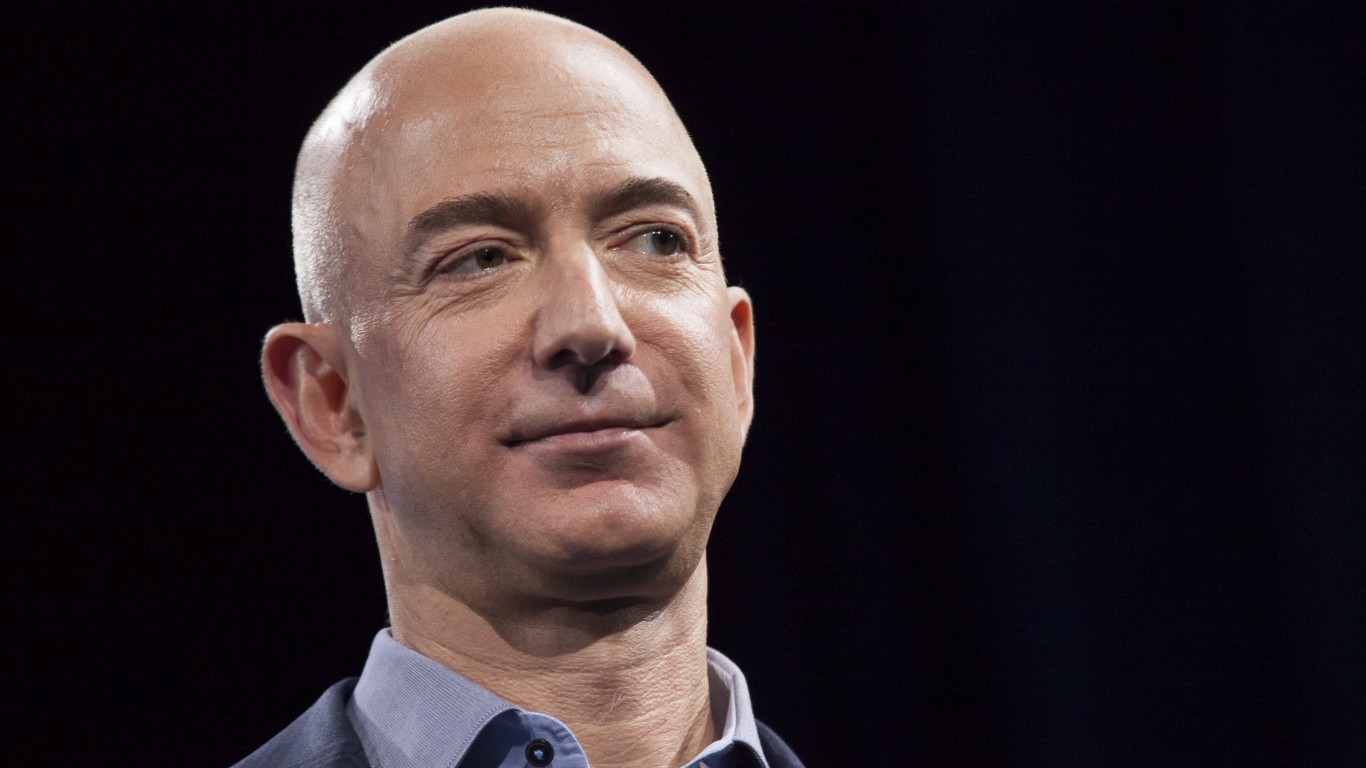 24/7 Wall St.
24/7 Wall St.